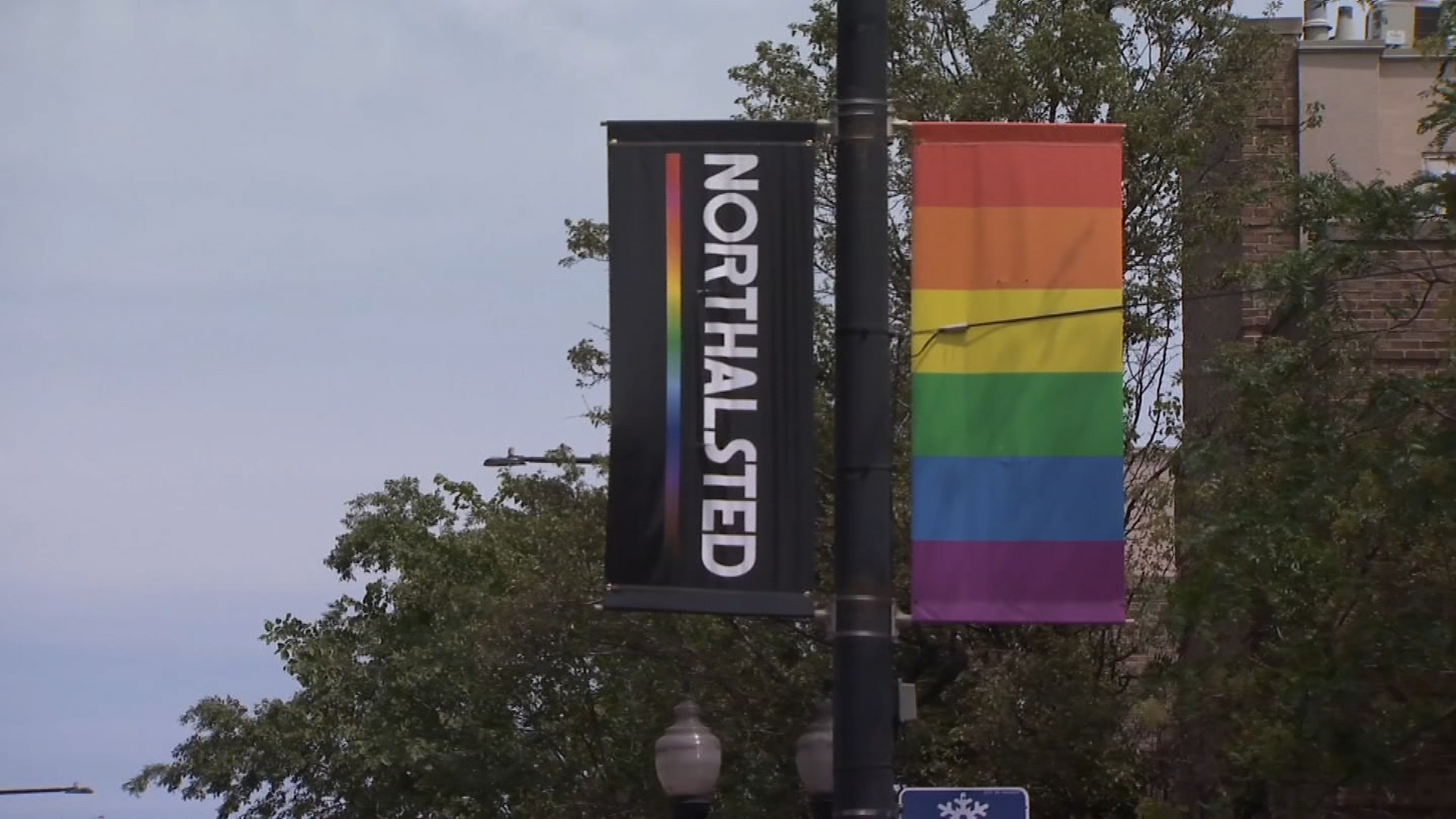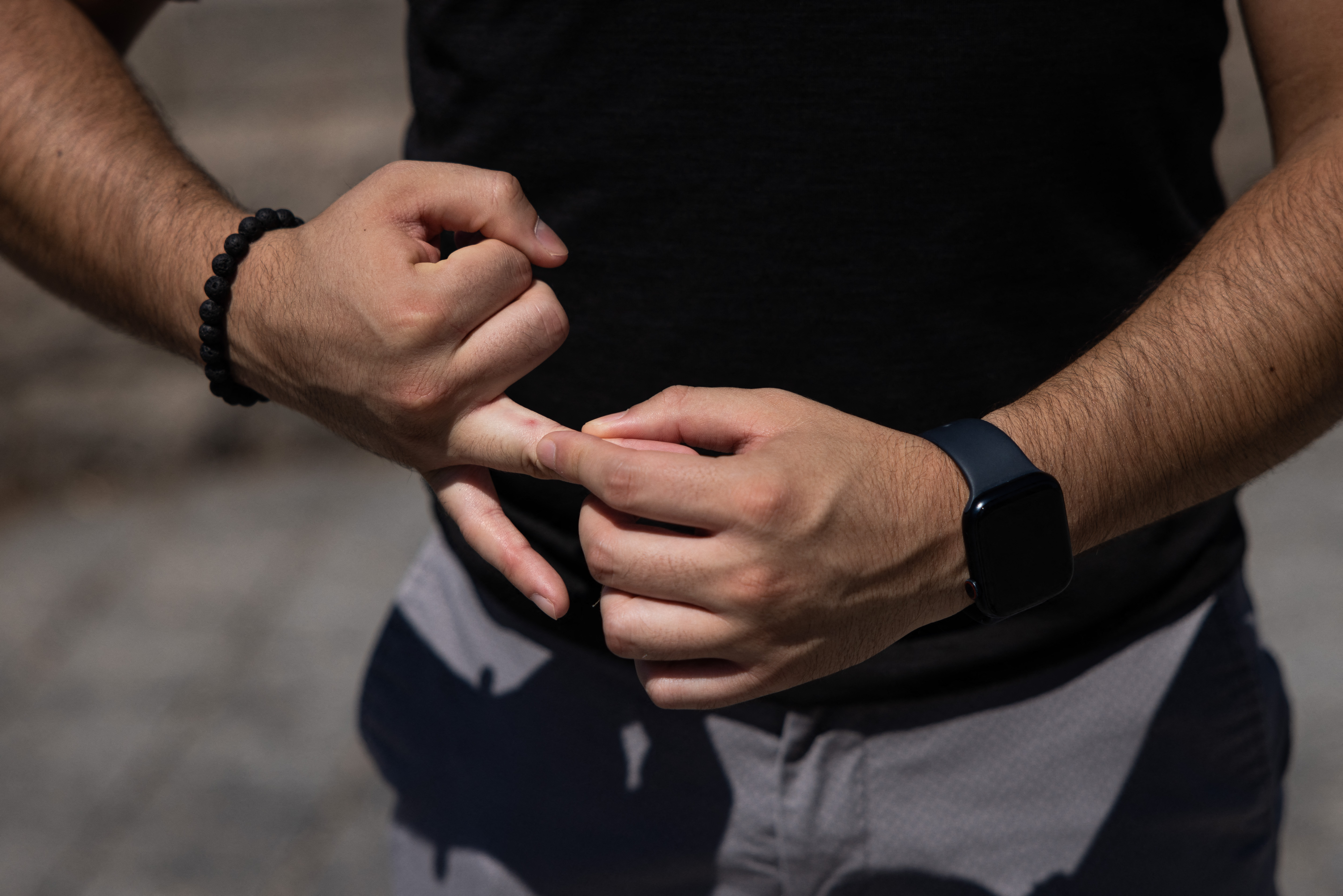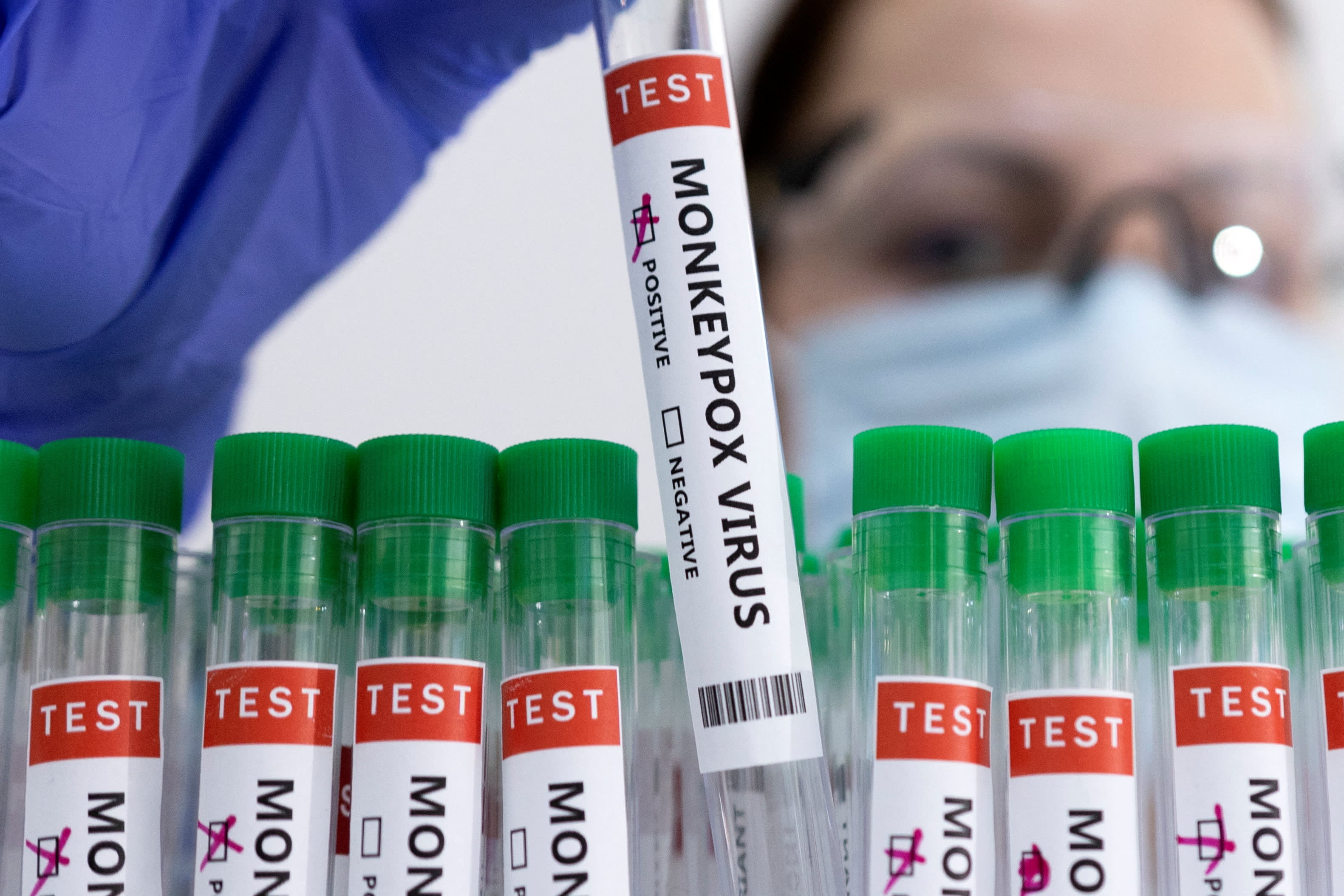President Joe Biden on Thursday declared the monkeypox virus, or MPV, a nationwide public health emergency as cases topped more than 6,500 across the country.
"We’re prepared to take our response to the next level in addressing this virus and we urge every American to take monkeypox seriously and to take responsibility to help us tackle this virus," Department of Health and Human Services Secretary Xavier Becerra said in a Thursday briefing about the emergency declaration.
And earlier this week, Illinois Gov. J.B. Pritzker declared monkeypox a statewide public health emergency, classifying Illinois as a "disaster area" in regards to the disease.
Both declarations open up access to emergency funds, allow health agencies to collect more data about cases and vaccinations, accelerate vaccine distribution and make it easier for doctors to prescribe treatment.
Feeling out of the loop? We'll catch you up on the Chicago news you need to know. Sign up for the weekly Chicago Catch-Up newsletter here.
But vaccine supply is still tight, with the limited amount only being distributed in certain settings, and to those that are of the highest risk of becoming infected. And, doctors and public health experts are continuing to express concerns as the virus spreads in ways that experts say they haven't seen before.
According to the Centers for Disease Control and Prevention, Illinois has the fourth-highest number of reported monkeypox infections nationwide, at 571. Nearly 460 of those cases are Chicago, the city's public health department confirmed Thursday.
New York leads the nation with 1,748 infections reported, followed by California, with 826, and Florida, with 577.
According to the Chicago Department of Public Health, the virus "has primarily spread through close-knit social networks of gay, bisexual, and other men who have sex with men (MSM)," but that anyone can get infected.
As Market Days approaches this weekend -- one of Chicago's most iconic events that takes place in the Northalstead neighborhood, an LGBTQ+ historic landmark -- here's what health officials are saying about vaccine supply, how the virus spreads, the community at highest risk and more.
Getting the Monkeypox Vaccine
With both declarations in effect, officials can more easily secure MPV vaccine shipments and ramp up distribution to ensure the most impacted communities receive treatment as soon as possible, according to a news release from Pritzker's office.
"Proclaiming a state of disaster will allow the Illinois Department of Public Helath to expand vaccine and testing capacities with the help of the Illinois Emergency Management Agency (IEMA) and via state and federal recovery and assistance funds," the release said. "This proclamation will aid in facilitating the complicated logistics and transportation of vaccines across the state to reach the most impacted communities efficiently."
However, according to a July 27 update from the CDPH, the monkeypox vaccine supply remains very limited, "though it is expected to continue to ramp up over the next few months as the U.S. acquires additional doses."
Thursday, CDPH Commissioner Dr. Allison Arwady said that the city this week received 13,000 additional doses, but that "it's still not anywhere meeting the demand." Arwady also noted that the city is preliminarily expecting 20,000 additional doses of vaccine over the next 4-6 weeks.
CDPH says it is prioritizing the vaccine for those at "highest risk," which includes "any individual who has had close physical contact with someone diagnosed with MPV or whose sexual partner was diagnosed with MPV in the last 14 days."
Additionally, you may be eligible for the vaccine if you are a gay, bisexual, cis or trans man who has had sex with men, and who meets at least one of these criteria:
- Has had intimate or sexual contact with other men in a social or sexual venue
- Has given or received money or other goods and services in exchange for sex
- Has intimate or sexual contact with multiple or anonymous partners
The city also says that limited vaccine is available through some healthcare providers -- and that as vaccine supply improves, more individuals will become eligible to receive one.
According to public health officials, the full course of vaccine consists of two doses given at least four weeks apart. It takes about two weeks for the first dose to take full effect.
According to CDPH, getting the vaccine is not currently recommended for the general public.
How is Monkeypox Spread?
While doctors have said that the overall risk to the general public remains low -- with transmission most often occurring from close personal or sexual contact -- WHO’s top monkeypox expert Dr. Rosamund Lewis last week said that 99% of all monkeypox cases beyond Africa were in men and that of those, 98% involved men who have sex with men -- the illness is spreading in ways that experts haven't seen before.
Still, doctors are stressing that the virus des not discriminate.
“MPV is not a ‘gay disease’,” CDPH Commissioner Dr. Allison Arwady said. “There’s nothing inherent in the biology of the virus that limits it to men who have sex with men. The virus spreads through tight-knit social networks; it does not discriminate.”
According to the CDPH, "Person-to-person transmission is possible through "close physical contact with monkeypox sores, items that have been contaminated with fluids or sores (clothing, bedding, etc.), or through respiratory droplets following prolonged face-to-face contact."
Arwady said most cases "are coming from much more intimate skin-to-skin contact or kissing" and noted that most casual contact and day-to-day activities - including things like shopping in crowded stores, going to a bar or coffee house, riding crowded CTA trains and buses, or using gym equipment or public restrooms - pose "little to no risk for contracting MPV."
According to Dr. Albert Ko, a professor of public health and epidemiology at Yale University, “The bottom line is we’ve seen a shift in the epidemiology of monkeypox where there’s now widespread, unexpected transmission. There are some genetic mutations in the virus that suggest why that may be happening, but we do need a globally-coordinated response to get it under control."
The CDC notes that MPV can be spread via direct contact with rashes, scabs or bodily fluids. It can also be spread via touching objects that have been used by an individual infected with the virus, or through contact with respiratory droplets.
Who is Most at Risk?
Arwady on Thursday said all but one of Chicago's cases have been diagnosed among men who have had sex with other men -- but she also emphasized that there is nothing about the virus that would limit it to that community.
“There is nothing biologic about this virus that makes it specific to men who have sex with men,” Arwady stressed.
However, vaccines are currently being distributed to those that the Chicago Department of Public Health has noted as being at highest risk -- which is "close-knit social networks of gay, bisexual, and other men who have sex with men (MSM)."
Additionally CDPH states that "risk is especially high if you are a MSM who has multiple or anonymous sexual partners."
Monkeypox Symptoms
The CDPH says monkeypox is a rare, but potentially serious viral illness, which often begins with flu-like symptoms and swelling of the lymph nodes, and progresses to a rash on the face and body, health experts said.
Virus symptoms range from fever, aches and rashes all over the body.
"Suspected cases may present with early flu-like symptoms and progress to lesions that may begin on one site on the body and spread to other parts," CDPH has said.
Dr. Irfan Hafiz, an infectious disease specialist with Northwestern Medicine’s McHenry and Huntley hospitals, said the virus causes symptoms that are similar to several maladies, including chickenpox or smallpox.
“It can, to the layperson, look like chickenpox or warts,” he previously said. “But these (sores) tend to be in exposed areas.”
Health experts also stated the illness can be confused with a sexually transmitted infection like syphilis or herpes, or with varicella zoster virus.
In the U.S., some experts have speculated whether monkeypox might be on the verge of becoming an entrenched sexually transmitted disease in the country, like gonorrhea, herpes and HIV.




